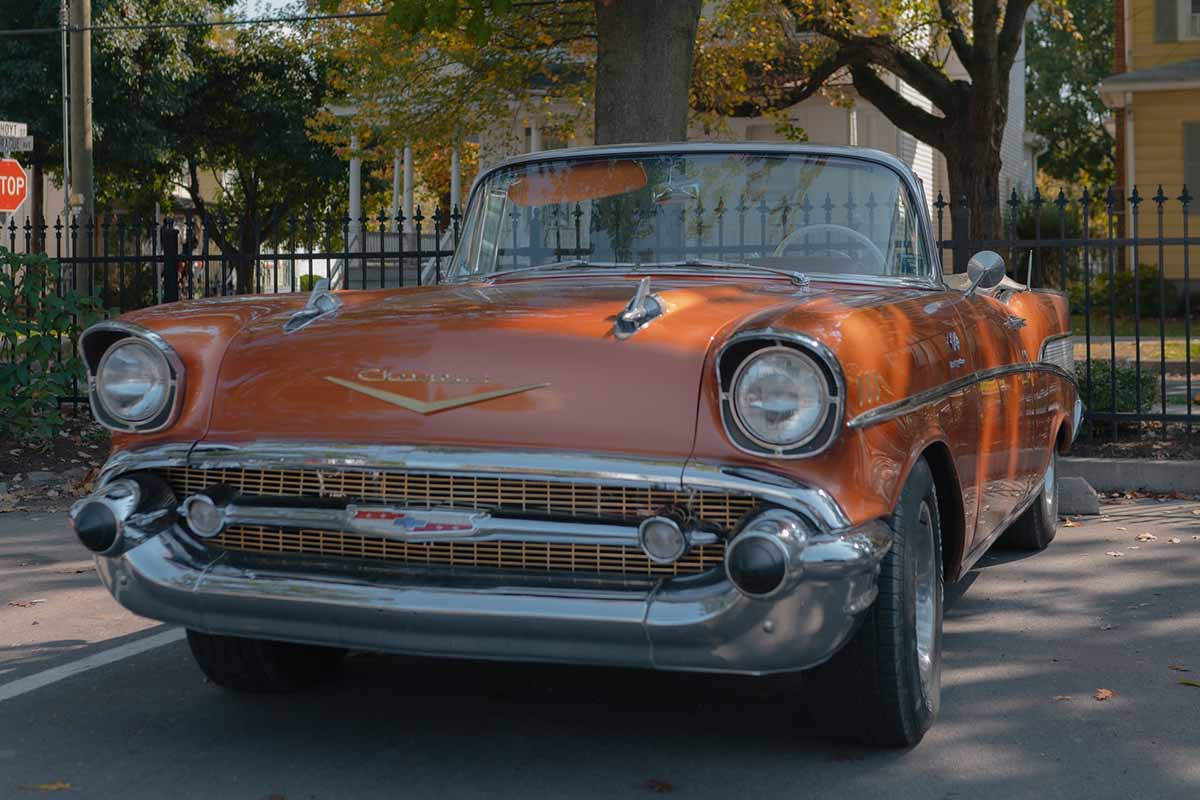When I was 7 years old we came home one day from the grocery store and unloaded everything into the house while the car sate in the driveway. I stayed in the house with Mom and my sister while Dad put the car away. It was a 1957 Chevrolet Bel Air Sport sedan. Back then it was just a nice car; a couple more decades would pass before it became a classic.
So Dad backed the car into the garage and in the process tore off the back door that I had left open in my rush to get in the house. Clearly my fault – at least according to Dad.
Now in 1965, what do you think happened to children that left car doors open to be torn off by garages? Today it would draw attention from child services but back then I was just being taught a lesson.
But I digress. Whose fault was this really? Or is fault even worth discussing? Whose fault was it when Mom backed over my sister’s bicycle with the Rambler?
Things just seemed to go wrong in our family when vehicles backed up. Or perhaps I’m a backing up jinx?
As a teenager, I cut the front end of my 1970 Dodge Super Bee into a power pole backing out of a service station and once even backed up in a left turn lane (don’t ask) with Dad’s pick up truck right into the grille of the compact car hiding behind the tailgate. I was real close when my buddy, Terry, backed his Toyota into a stump at Long Beach (he spent quite a while convincing us that it had been his wife’s fault…somehow) and I was home when my former wife Rhonda backed her Acura out of the garage (or tried to) with the door still closed and another co-worker once connected with a tree while backing up in a company truck.
Is it just me or does this backing up stuff seem to be just a little more complicated than we all think?
In most vehicle fleets, backing incidents account for over 40% of all reportable vehicle incidents even though we drive in reverse only a fraction of the distances that we go forward. Backing incidents are a big deal. They absorb huge dollars in property damage and not infrequently result in serious injury.
Not surprisingly, backing incidents are almost always PREVENTABLE. In our courses, we highlight 7 fundamental ideas to prevent backing incidents. Maybe they will help you avoid some problems that I have seen (and on occasion caused).
- Avoid Backing! – Let’s face it, if you don’t back up, you won’t have a backing up incident. It’s easier than you might think. Before you park your vehicle or get into any tight area, think about how you will get out. Can this be done without backing up? Most of us already scope out the spots, in the mall parking lots, that let us drive though an unoccupied spot to the next one, leaving us facing out for a quick getaway. That’s thinking! Now apply that same logic at work. If you have to go somewhere to park or for other reasons, back up first, when you can see that the area is clear, and make your first move forward when you leave.
- Circle Check – If you are moving your vehicle from a place where it has been parked or has not moved for a long enough that things may have changed, walk around and make sure that it’s safe before you move it.
- Look Back – In a pick up or utility vehicle, set up your mirrors properly and use them! If you can’t see what’s back there, stop and get out to look! In a passenger car, look out the centre of the rear window, over the back seat. (If you twist around and hike yourself up on your right butt cheek, it’s easier). Looking out the driver window, over your left should doesn’t tell you much and creates a huge blind spot everywhere except the narrow view down the driver’s side.
- Use a Guide – If someone else is around to help of if you have a passenger, have them get out and direct you.
- Back Slowly – Your vehicle handles differently in reverse and can get difficult to control with too much speed. A walking pace is all the speed you will likely ever need.
- Avoid Distractions– Don’t try to multitask and use your cell phone or other hand-held device. If you are distracted by strong emotions or in a conversation, stop for a second before you back up and focus on your driving.
- Practice – We back up so little that most of us never really get very good at it. So get out and practise backing up into parking spots in a deserted parking lot. Take a couple of traffic cones, if you have them, or small cardboard boxes and make up a little course for yourself. As you get better, your confidence will increase and you will soon be backing up safely, like a pro.
All of the backing incidents that I described above were off the job, and this is where I want to take extra care. Every year hundreds (yes hundreds) of young children are injured or killed when one of their parents, relatives or friends backs over them in the driveway at home. The 7 principles that you just read can save the life of a child. Go back now and read them again.
How can you apply them at home and at work?
Maybe as a kid, my family was pretty lucky after all. We only lost a bicycle or two – and that stupid Chevy door.









